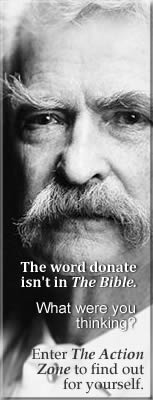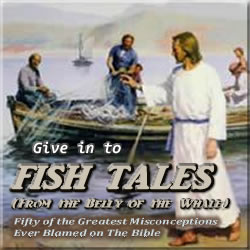The Paradox of Cynicism (Cont’d)
Because There’s a Difference Between Healthy and Malignant Forms of Cynicism
Speaking of the original cynic, the ancient Greek philosopher Dio Chrysostom wrote:
Diogenes was surprised by the fact that had he claimed to be a physician for the teeth, everybody would flock to him who needed to have a tooth pulled; yes, and by heavens, had he professed to treat the eyes, all who were suffering from sore eyes would present themselves, and similarly, if he had claimed to know of a medicine for diseases of the spleen or for gout or for running of the nose.
But when he declared that all who should follow his treatment would be relieved of folly, wickedness, and intemperance, not a man would listen to him or seek to be cured by him … as though it were worse for a man to suffer from an enlarged spleen or a decayed tooth than from a soul that is foolish, ignorant, cowardly, rash, pleasure-loving, illiberal, irascible, unkind, wicked and, in fact, utterly corrupt.
On Virtue, or Diogenes
Story Continues Below
Says Richard Price—the founder and CEO of Academia.edu—on his podcast In Depth With Academia:
Conquering the Joy of Cynicism and the Death of Beauty: How Your Worldview Shapes the World You Live In is:
To hear Price’s book review of Conquering the Joy of Cynicism and the Death of Beauty, CLICK HERE.
To hear Kent talk about the little-known biblical prophecy, which speaks of the 5,500-year chronology from Adam to Christ, with Zen Garcia, the host of the Internet talk show Secrets Revealed, CLICK BELOW.
Story Continues From Above
Ironically, when one examines the roots of cynicism, it should escape no one who has ever studied the teachings of Jesus of Nazareth that these ancient Cynics were actually successors of the Hebrew prophets as well as forerunners of Christ Himself.
After all, who more than the Hebrew prophets were characterized by their outcry against ambition, greed, and materialism? Who railed more against conventional goals of wealth, power, and honor? Who more than Jesus conformed less with the social norms of His day, in religion and manners?
As to the parallels between this original form of cynicism and the teachings of Christ, Dio Chrysostom further recorded, in the century immediately following the birth of Christianity:
Just as the good physician should go and offer his services where the sick are most numerous, so, said Diogenes, the man of wisdom should take up his abode where fools are thickest in order to convict them of their folly and reprove them.
On Virtue, or Diogenes
However, while the cynics of old and their modern-day counterparts are characterized by a general lack of faith or hope as a result of their view of human motives, Jesus and His disciples never succumbed to the negativity that is associated with full-blown cases of cynicism.
Like all things pertaining to the human condition, then, what is valuable in moderation is dangerous when excessively indulged in. In fact, it’s this paradoxical quality of cynicism that lies at the heart of the human dilemma. That’s why I’m suggesting in the following work that we differentiate between the healthy and malignant aspects of this thing called cynicism. So, in the interest of steering clear of any negative aspects associated with cynicism, I’d suggest that when The Bible describes how the prophets and Jesus address the human condition, they’re not so much being “cynical” as they’re being “suspicious.”







